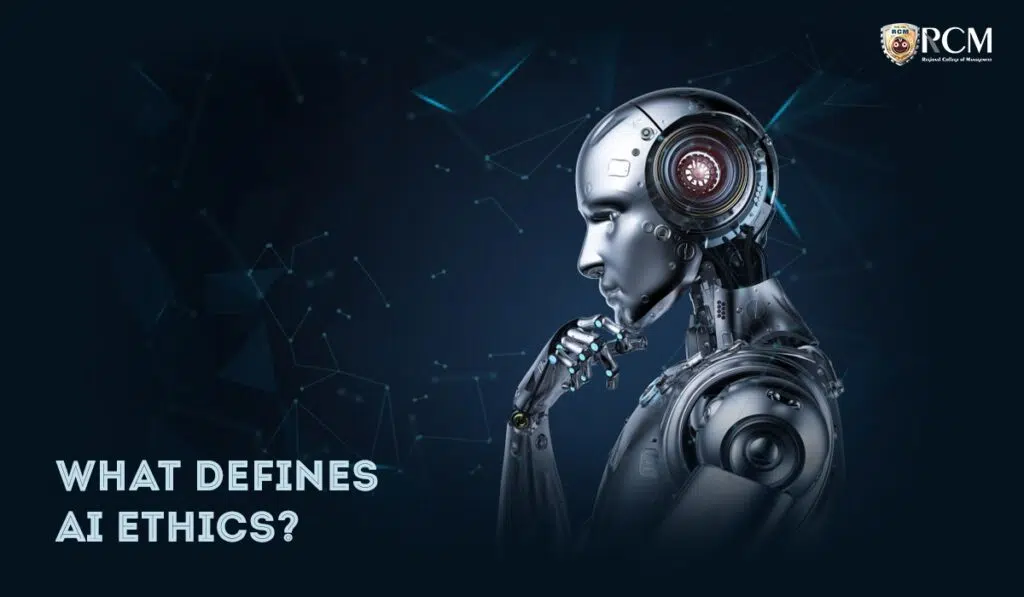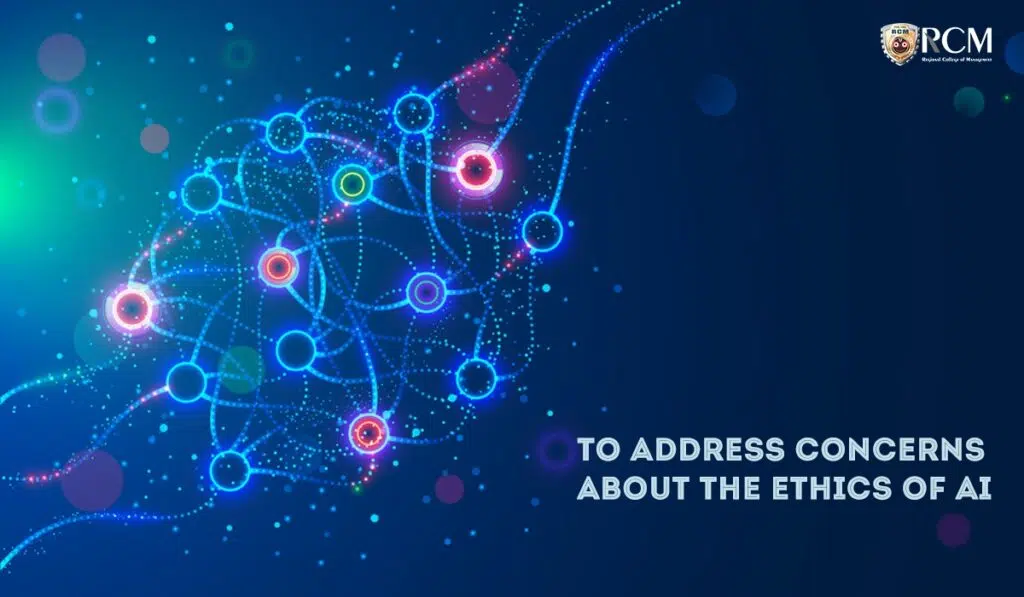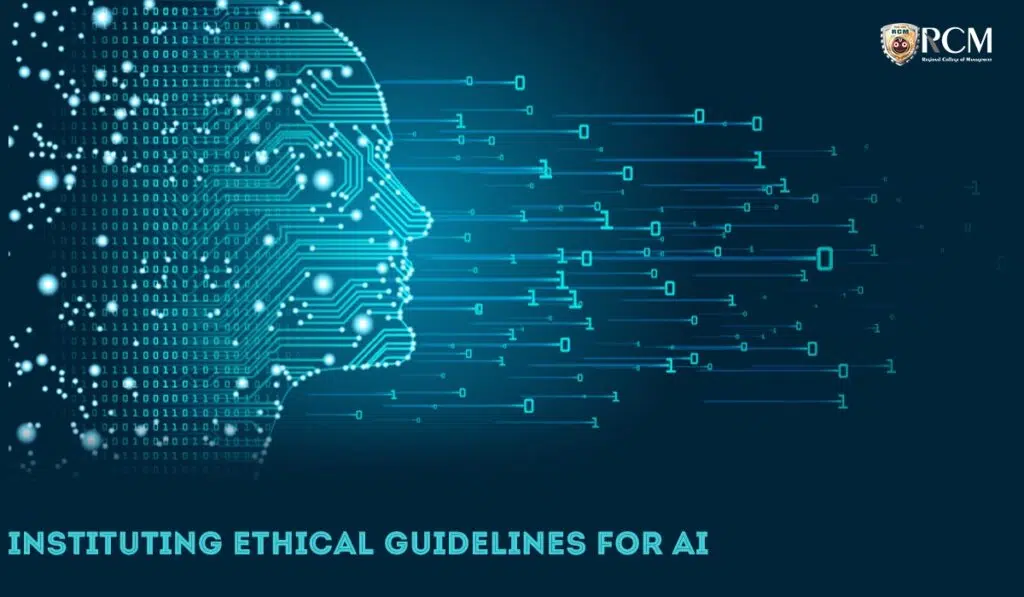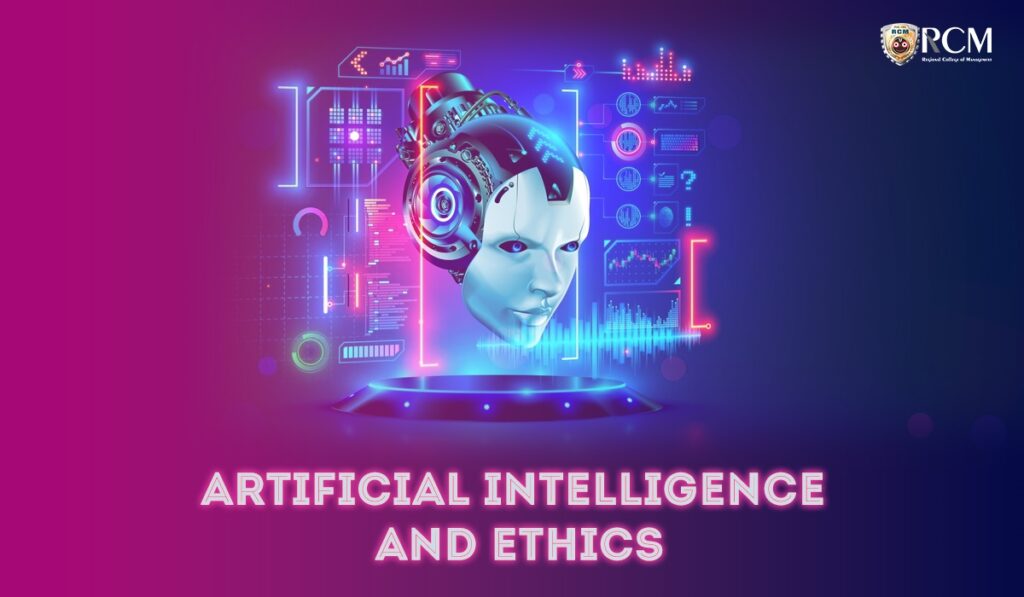In the following decades, Artificial Intelligence and machine learning technologies will continue to fundamentally evolve society. The robust new technologies that are transforming society will have a significant ethical impact on how they both enhance and interfere with human life.
AI approaches everything that humanity already is, both good and bad, in amplified form because it is the externalization of human intelligence. A lot is on the line. At this pivotal point in history, we must carefully consider how to make this change, as we risk empowering the darker rather than the kinder aspects of our nature.
What defines AI ethics?

Moral guidelines that help us distinguish between right and wrong are a part of ethics. A set of rules called AI ethics offers guidance on the creation and results of artificial intelligence. Humans have a variety of cognitive biases, including frequency and confirmation bias, which are manifested in our behaviors and, consequently, in our data.
We must structure experiments and algorithms with this in mind because data is the basis for all machine learning algorithms. Artificial intelligence has the potential to amplify and scale these human biases at a rate that is unprecedented.
The rise of big data has heightened businesses’ emphasis on implementing automation and data-driven decision-making across their organizations. Companies are encountering unexpected outcomes in some of their AI applications, particularly as a result of substandard upfront research design and biased datasets, even though the intention is typical, if not always, to improve business outcomes.
To address concerns about the ethics of AI:

new guidelines have been released, primarily from the research and data science communities. Leading AI companies have a vested interest in establishing these standards because they have already felt the consequences of failing to uphold ethical standards in their products.
Failure to exercise due diligence in this area may expose one to reputational, regulatory, and legal risk, subjecting one to exorbitant fines. In new, emerging fields, innovation frequently outperforms governmental regulation, as it does with all technological advancements.
We can anticipate more AI protocols for businesses to follow as the necessary expertise grows within the government sector, enabling them to prevent any violations of human rights and civil liberties.
Instituting Ethical Guidelines For AI:

As guidelines and rules for the use of AI are created, they also serve as a means of directing ethics in experimental research and algorithm development. There are three key ideas that emerged and can be used to design experiments and algorithms.
1. Acknowledgment for Individuals:
This concept upholds a desire for researchers to protect individuals with disabilities, which could be caused by a variety of circumstances like illness, a mental disability, or age restrictions. It recognizes the individuality of people. This principle focuses primarily on the concept of consent. People should be able to choose whether to participate in or withdraw from any test at any time before or during it, and they should be made aware of any risks and benefits.
2. Generosity:
This ethical principle borrows a page from moral philosophy, where physicians swear to “do no harm.” This concept is easily adaptable to artificial intelligence, where biases related to race, gender, political leanings, etc. can be amplified by algorithms despite their good intentions and attempts to enhance a given system.
3. Equality:
This concept is concerned with issues like equality and fairness. Who should profit from testing and machine learning? This suggests the following five methods for distributing costs and benefits:
- An equal share
- A particular need
- Each person’s effort
- Social involvement
- Merit
How AI ethics can be established:
Since moral machines were not created by artificial intelligence, team members have begun to put together frameworks and concepts to address some of the current ethical issues and guide the direction of future research in the area. The following is generally agreed upon to be included, even though these guidelines are constantly being given more structure:
- Administration
- Presentation and communication
Its success will undoubtedly depend on achieving ethical AI. It’s crucial to remember that it has a great chance of having a positive impact on society. This is beginning to be evident in how it is being incorporated into healthcare fields like radiology. By having this discussion about AI ethics, we can make sure that, as we work to harness this technology for good, we are properly evaluating any potential for harm that may arise from the way it was designed.




















